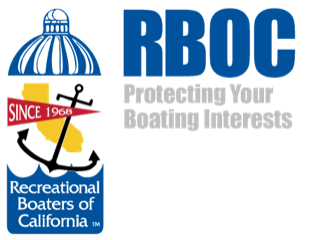RBOC and BoatUS are suggesting to a coalition of interests pursuing expedited budget trailer bill legislation that the issue should not be rushed during the final month of legislative activity this year, and should instead be addressed within the stakeholder process the Division of Boating and Waterways will be initiating in the near future.
The proposed amendments to the Fish and Game Code and the Harbors and Navigation Code would expand the existing quagga and zebra program to include invasive freshwater mussels including golden mussels. This presents several issues:
Legislation should address prevention efforts in a comprehensive manner and involve the various agencies, departments, divisions, stakeholders and beneficiaries rather than a piecemeal approach focused prematurely on recreational vessels.
Expansion of the current program should address and include the financial participation of the most prevalent source of the introduction of invasive species in our waterways, which is commercial ship ballast water.
Expansion of the current program should identify and place a high priority on timely, efficient, and effective measures to prevent the spread of golden mussels.
A stronger emphasis should be placed on recreational vessel decontamination to minimize the disruption of on-the-water recreation.
Inspections should extend to the variety of non-motorized craft that are placed into the water at locations other than launch ramps, such as kayaks, canoes, rafts and other vessels, together with their financial participation.
Expansion of the current program should be preceded by an analysis of the data and findings developed through its implementation over the past 10 years with grants exceeding $26 million, incorporating improvements where appropriate.
Expansion of the current program should be preceded by an analysis of how the current inspections for quagga and zebra mussels also effectively identify the presence of golden mussels without an additional dedication of resources.
Fees paid by boaters should be deposited in the Harbors and Watercraft Revolving Fund and administered by the Division of Boating and Waterways in State Parks with an assurance that the funding will be utilized for and dedicated to boating-related services.
These issues will be considered by the Division of Boating and Waterways as it develops recommendations to the Legislature to resolve the ongoing structural deficiency in the Harbors and Watercraft Revolving Fund, as per the recently-adopted state budget for Fiscal Year 2025-2026.
This soon-to-be-initiated DBW stakeholder process is our preferred mechanism for the consideration and development of plans to expand the current prevention program to include invasive freshwater mussels including golden mussels. RBOC and BoatU.S. are encouraging this as an alternative to the current proposal.


